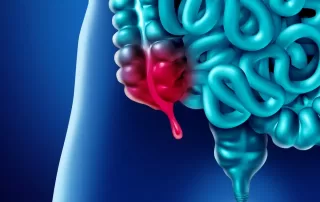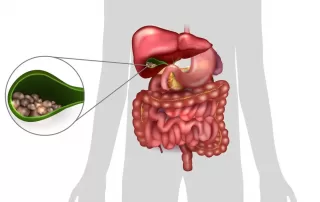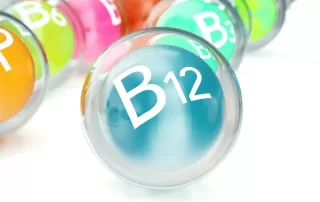Acid Reflux / GORD
Welcome to Qoctor’s online doctor service which can provide assessment for GORD/Acid Reflux. Answer some online questions, then book a video consultation with an AHPRA-registered doctor. Repeats available.
The consultation fee is $29.99. If a prescription is advised, it can be sent as an eScript to your phone OR electronically to your local pharmacy. Alternatively you can have medication delivered by an Australian partner pharmacy- in this case, the cost of medication is added at the checkout. All treatment and advice is issued subject to your consultation and the doctor’s assessment.
About Acid Reflux & GORD
- Gastro-oesophageal reflux disease (also known as GORD or acid reflux) is a common condition caused by acid rising from the stomach into the oesophagus (food pipe). This can cause symptoms such as heartburn, nausea, bloating, indigestion, belching, a taste of acid in the mouth, and sometimes a dry cough.
- It can be triggered by various things, such as acidic or rich foods, large meals, alcohol, being overweight, and smoking.
- If you’ve had reflux for a few days, a short course of antacid medication may get rid of the symptoms. If this does not work, it’s essential you see a doctor for a check up, as there can be a more serious underlying condition.
- Some people suffer from reflux on an ongoing basis and need to take antacids every day. Anyone who needs long term antacids should have a camera test (gastroscopy) to make sure there is nothing more serious going on, and should also have a check up with their doctor every 6 to 12 months.

Common Questions and Answers
Gastro-oesophageal reflux disease (GORD) is a general term which encompasses acid reflux, heartburn, indigestion and oesophagitis. It may include one or more of these conditions. It is caused by irritation of the stomach or food pipe (oesophagus) by stomach acid.
The stomach naturally makes acid as part of the normal digestion process. Usually the sphincter at the bottom of the oesophagus acts as a valve and keeps this acid in the stomach. Acid reflux can happen if this sphincter is weak, if there is too much acid made in the stomach, if the stomach is not emptying properly, or if there is increased pressure in the stomach, forcing acid back up into the oesophagus.
Many things can trigger Acid Reflux / GORD including:
- Smoking
- Caffeine
- Alcohol
- Hiatus Hernia
- Helicobacter Pylori ( a common infection of the stomach)
- Acidic or spicy food and drink
- Large fatty meals
- Obesity
- Stress
- Pregnancy
- Medications (including anti-inflammatories, certain blood pressure medications, sleeping tablets and painkillers)
The main symptom of GORD is heartburn. This is a discomfort or burning sensation which rises from the upper tummy or lower chest up towards the neck. Other common symptoms include:
- Nausea
- Belching
- Indigestion
- An acid-like taste in the mouth
- Persistent dry cough
- A feeling of a lump in the throat
- A burning pain when you swallow hot drinks
Symptoms tend to be worse after or with meals.
If you get any of the following symptoms you should seek immediate medical attention. They may indicate a more serious underlying condition:
- Chest pain or upper tummy pain worse on exertion
- Difficulty swallowing foods or liquids
- Persistent pain on swallowing
- Persistent vomiting
- Vomiting blood or dark brown vomit
- Unexplained weight loss
- Altered bowel habit (diarrhoea or constipation) for more than 6 weeks
- Altered stool (dark or black poo)
- Lump in the abdomen (tummy)
- Unexplained anaemia
- Jaundice
- New GORD symptoms in someone aged 55 years or over
- GORD symptoms with any of the following:
- Family history of stomach or oesophageal cancer in more than two first degree relatives
- Barrett’s oesophagus
- Pernicious anaemia
- Previous stomach ulcer surgery
- Pernicious anaemia
- A previous diagnosis of the following stomach conditions: dysplasia, atrophic gastritis or intestinal metaplasia
Most people are diagnosed with GORD by their GP on the basis of their typical symptoms and their response to treatment. Further tests may be needed if:
- Symptoms are severe
- Do not improve with treatment
- Are not typical of GORD
- There are any red flag symptoms
If further investigation is required a gastroscopy is usually the next step. This is where a thin, flexible telescope is passed down the oesophagus into the stomach. A normal test helps to rule out more serious causes of reflux symptoms, particularly stomach cancer.
Lifestyle changes may help, such as and avoid triggers- for example avoiding smoking, alcohol and weight gain. There are over the counter medications which help to neutralise acid, as well as other medications which may be prescribed by doctors, subject to assessment.
Oesophageal stricture– Acid Reflux / GORD can cause scarring and narrowing of the food pipe called an oesophageal stricture if left untreated. This can lead to difficulty swallowing, and problems eating and drinking.
Barrett’s oesophagus – this is a complication of long standing, untreated Acid Reflux / GORD. The excess acid causes a permanent change in the cells that line the oesophagus. It increases the risk of developing cancer of the oesophagus, and thus needs to be managed and monitored.
But most people with Acid Reflux / GORD do not develop any of these complications. If you have any concerns then you should discuss them with your doctor.
Health Library- Digestion & Bowel Health
Appendicitis- recognising the symptoms
Appendicitis- recognising the symptoms cause symptoms diagnosis treatment When people come to see the doctor with abdominal pain, often they are worried it could be Appendicitis. So how do you know if you have Appendicitis? Here are a few tell-tale signs that doctors look out for. But first, what exactly is Appendicitis? What is the Appendix and what does it do? The appendix is a small worm-like tubular structure that extends from the start of the large intestine (the caecum), which in most people is situated in the lower right side of the abdomen (tummy). The appendix does not appear to have any important functions in modern-day humans. However, in other mammals, the appendix still has a role in the digestion of food- so it may have had a similar purpose for our human ancestors. [...]
What are gallstones and why do they happen?
What are gallstones and why do they happen? what are they? causes symptoms tests & treatment What are gallstones? Gallstones are hard deposits that form in the gallbladder The gallbladder is a sac-like organ located just under the liver- it stores bile which is a yellow-green liquid formed by the liver, that helps to digest food. When you eat, the gallbladder contracts, and squirts bile into the intestine. Gallstones can consist of different substances- cholesterol, pigments, or a mixture of both. Quite often there are bacteria contained in the centre of the stones. Request a medical certificate How common are gallstones? Around 15% of the population are thought to have gallstones, but most of these people have no symptoms. Why do people get gallstones? What causes gallstones? It’s not fully understood what [...]
Low Vitamin B12- symptoms,causes & treatment
Vitamin B12 deficiency- causes, symptoms & treatment of low B12 introduction causes symptoms tests & treatment What are B vitamins? Are you getting enough Vitamin B12? Vitamins are substances that occur naturally in food, and are needed for many essential body functions. There are 13 vitamins required by our body- and 8 of these are types of Vitamin B. The B Vitamins have a wide variety of important roles in the body, particularly in relation to growth, repair and energy production. Whilst most healthy people who eat a broad and balanced diet will get enough B vitamins from their food, you can become deficient (low) in these vitamins for a variety of reasons. You can develop low B12 if there is not enough of it in your diet, if you're unable to absorb the vitamin properly, or if your body is using it up [...]



